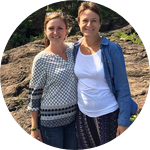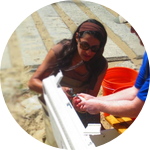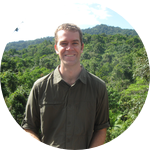About This Project
Safe drinking water is an essential human need. Poor water quality can adversely impact human health. Recent scares in Flint, MI and Toledo, OH brought water issues into limelight. We will investigate people's opinions and knowledge about drinking water, how they react to water scares, and what solutions they would support. Results will help local governments and scientists evaluate solutions and improve messaging about drinking water quality.
Ask the Scientists
Join The DiscussionWhat is the context of this research?
Water contamination crises in Flint, Michigan and Toledo, Ohio have shone a light on national water quality issues. However, recent research shows that public perception of drinking water quality in the US is more closely related to socioeconomic factors than known risks (Pierce and Gonzalez, 2016). While contaminated water can have adverse health effects, there are also risks associated with mistrust in safe tap water. Distrust of tap water may lead to higher consumption of sugary beverages (Onufrak et al. 2014). In Flint, MI, despite scientist approval of water for washing, public distrust caused people to alter their hygiene habits, which has been associated with increased bacterial outbreaks in fall 2016.
What is the significance of this project?
We want to understand how people make decisions about using tap water. Since public distrust may be associated more with socioeconomic factors than known risks, there may be a mismatch between water quality messaging and public interpretation. By interviewing 50 people from various socioeconomic backgrounds in Columbus, Ohio (a city that had a water scare in June 2016) we will evaluate the communication breakdown. We want to know what people know about their tap water, how they make decisions about tap water, how they interpret water quality messaging, and their level of trust in scientists, water providers, and proposed solutions. Results can improve water quality communication.
What are the goals of the project?
We will interview 50 people from different socioeconomic backgrounds in Columbus, Ohio. We will ask people about their experiences with tap water and their interpretations of messaging types to identify where communication is lacking. Interviews will be conducted by Meghna Marjadi and trained undergraduate researchers. Our first step is to decide on study sites and gain approval from the University. This can take 2-3 months. We will begin this process immediately with the goal of starting interviews in early 2017. Interviews will be recorded and transcribed for qualitative analysis using NVivo. Based on our preliminary results, we may consider expanding our study to do a broader survey or conduct more interviews.
Budget
This funding would allow us to begin a pilot study in Columbus, Ohio, a city that experienced water scare in June 2016. We will answer our research questions by conducting 50 interviews with citizens in neighborhoods with a variety of socio-economic backgrounds. Funding will allow us to provide incentives to interviewees for their time ($25 per interviewee), travel to interview sites ($100), and create project materials ($150). Once we have completed 35 interviews, we would use our findings to further develop and expand the project. Without this funding, we will likely have trouble attracting interviewees from a variety of backgrounds, getting proper equipment to conduct and record interviews, and travelling to interview sites. We will use results from this project to expand our research and answer more important questions about public perceptions of water quality.
Endorsed by
Meet the Team
Meghna Marjadi
I am interested in relationships between food and water security, environmental policy, and ecology. Currently, I am a PhD student in the School of Natural Resources and Environment at The Ohio State University in Columbus, Ohio. In August 2016, I completed my MS in Organismic and Evolutionary Biology at the University of Massachusetts, and I completed my BSc. in Wildlife Biology at McGill University in 2010 (Montreal, Canada). Prior to graduate school, I worked as a high school programs coordinator at Science Club for Girls (Cambridge, MA), a research assistant at the Mystic River Watershed Association (MyRWA, Arlington, MA), and a development and communications assistant at Alternatives for Community and Environment (ACE), an Envrionmental Justice organization in Boston, MA.
Eric Toman
I have an interdisciplinary background that includes training and experience in the social and natural sciences. My research is focused on developing a better understanding of the social dimensions of coupled human and natural systems. Using theory and methods from sociology and social-psychology, I examine the factors that influence the adoption of behaviors that enable adaptation to changing environmental conditions. Prior to joining SENR, I completed an American Association for the Advancement of Science, Science and Technology Policy Fellowship in the Climate Program Office of the National Oceanic and Atmospheric Administration. In this role, I served as a US delegate to the 28th United Nations Framework Convention on Climate Change / SBSTA negotiations.
Lab Notes
Nothing posted yet.
Additional Information
We will provide lab notes about interviews and, when permitted by study participants, include soundbites ant photos of our experiences.
Project Backers
- 0Backers
- 0%Funded
- $0Total Donations
- $0Average Donation


